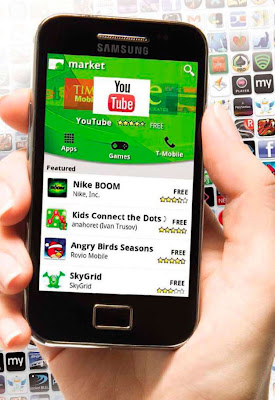The iPhone is not a regular mobile phone. An iPod-cellphone hybrid, it is a fully-featured hand-held computer, and one that in its second edition, 3G-compatible form and later, is heavily subsidised by the network operators to tempt you into signing up for a monthly contract. That is why the pay-as-you-go version is so much more expensive.
Times have changed
However, many buyers of the first iPhone took one home without ever intending to sign up with the O2, network contract, realising that if they could find a way to crack the iPhone's software protection — which supposedly stopped it working if you didn't sign up — they would have bought themselves something that looked like an iPod touch and cost about the same, but was massively more powerful. Better still, because they had never inked their name on the bottom of a contract, it cost no more to run. The software that made this possible was quick to appear, and easy to implement. As a result, first-generation iPhones can now be found running on pretty much any network you care to name, and in some cases no network at all.
This was less of a problem with the original iPhone as it was not subsidised, and buyers paid the full price for each one, so while the networks were losing out on contract revenues, they were at least recouping all of their costs on the hardware itself. However, that is not the case with the iPhone 3G with both Apple and the networks implementing measures to make sure that nobody can buy and use an iPhone without activating it. It is now impossible to walk out of a store with one unless you have already passed the necessary credit checks and taken out an 18-month deal, which costs between £30 and £75 a month depending on how many bundled texts and talk-time minutes you choose to take. As such, every iPhone is locked — in theory — into the network partner in each country in which it is sold.
The question remains why anyone would want to buy an iPhone without a contract, considering you will have to pay not only for the number of minutes you use it for voicecalls, cough up for every text you send and even pay for the data you transfer over the various mobile networks, which is arguably the iPhone's most compelling feature. However, in some countries it is illegal to sell mobile phones tied to a network, so Apple has chosen to roll out a pay-as-you-go alternative as a convenient workaround even in those countries where regular contracted phones pose no legal headaches.
The best contract for you
To work out whether pay-as-you-go or an 18- or 24-month contract is best for you, pick the monthly deal you feel most closely matches your needs and multiply the cost by 18 or 24 to cover the life of the contract. Add to that the cost of your chosen iPhone that comes with the contract and then subtract the cost of the standalone iPhone on pay-as-you-go. The remaining balance is what you would have available to spend over the next year and a half on calls, text and data transfer before rejecting the idea of a contract becomes financially disadvantageous.
For comparison, divide that balance by 18 and, if it is still more than you pay on your current contract, it may be worthwhile opting for pay-as-you-go rather than a contract, so long as you remember that your current contract may not include data charges, which you will almost certainly incur with an iPhone once you get used to the idea of having email and the web in your pocket 24 hours a day.


No comments:
Post a Comment